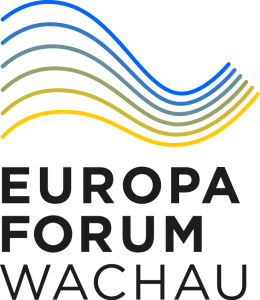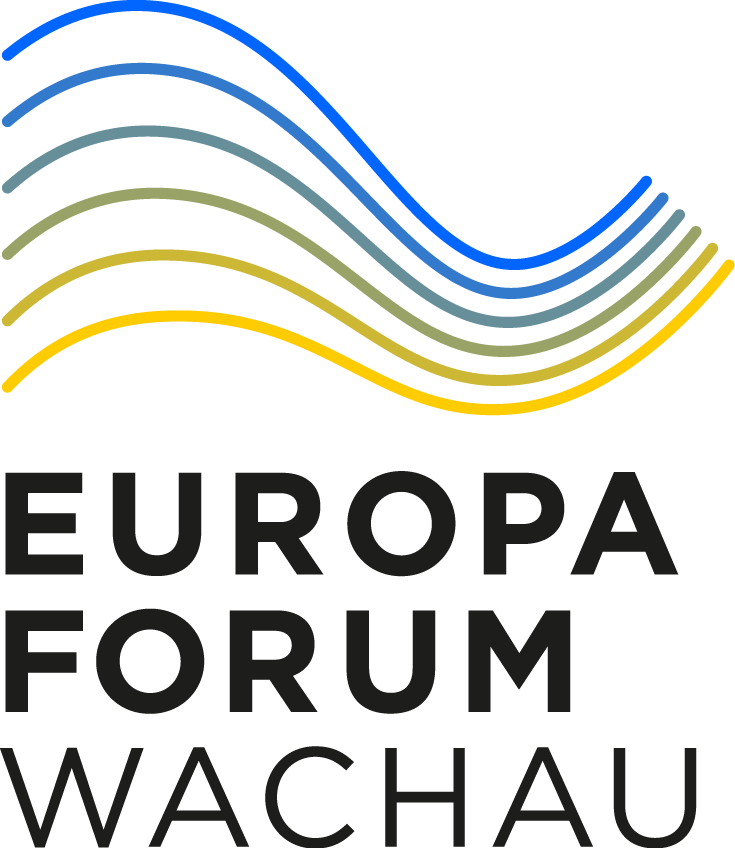LH Mikl-Leitner welcomed Italian Prime Minister Meloni and Bulgarian President Radev, among others, to Göttweig Abbey
This year's Wachau Europe Forum came to an end today, Saturday, with high-calibre guests including Italian Prime Minister Giorgia Meloni, Bulgarian President Rumen Radev and Austrian Chancellor Karl Nehammer. Under the motto "Building a resilient, green and competitive europe", key developments within the European Union were discussed over three days with guests from the worlds of politics, business, culture, media and diplomacy.
In her speech, Governor Johanna Mikl-Leitner referred in particular to the issue of illegal migration: "We cannot be a strong, self-confident Union if we cannot protect our external borders. The fight against illegal migration is therefore becoming a key issue for the European Union." The crisis of illegal migration needs a common solution "more urgently than almost any other issue in Europe". This issue cannot be solved by one region or one country alone and therefore alliances need to be forged, said Mikl-Leitner. We must now work together on new regulations on asylum issues, she stated: "This ranges from functioning border protection and fast-track procedures at the EU's external borders to discussions on procedures in safe third countries."
Italian Prime Minister Giorgia Meloni spoke of a "very special occasion in a place steeped in history". Today we are talking about the future of Europe and this exchange is very important. Europe is "not simply a geographical concept, but above all a civilisation, a culture based on the values of places like here". With regard to the current challenges, she said that the war in Ukraine had jeopardised stability and global security. It was now a matter of defending stability and protecting security. The European countries were pursuing a common strategy here. She also called for a "new era in international relations". Italy wanted to be "a gateway, a logistical platform" for clean energy, which could also be generated to a large extent by African countries. We need to help the countries there to grow, and to do this we need to forge strategic partnerships. When it comes to migration, we must have "the courage to take a completely new approach", she emphasised, saying that it is not humane to give unscrupulous smugglers a free hand and allow smugglers to decide who is allowed to arrive in Europe and who is not. Meloni: "International cooperation for development is humane, supporting those fleeing war and violence is humane."
Bulgarian President Rumen Radev said that the pandemic and the war in Ukraine had shown "how vulnerable we are in various sectors". He also greatly appreciated the Forum's efforts to integrate the Western Balkans. However, he argued in favour of not allowing any compromises with regard to the Copenhagen criteria. Bulgaria had always tried to protect the Union's external borders in solidarity, he emphasised. His country had always adhered to solidarity, but this was a "common European challenge". Bulgaria would continue to protect the EU's external borders to the best of its ability, he assured, saying that this was "our European obligation". But keeping Bulgaria and Romania "out" of the Schengen area would not contribute to Europe's security and prosperity, said Radev.
Austrian Chancellor Karl Nehammer said that Göttweig Abbey was "always a place of strength". He recalled three years of the pandemic, after which war, inflation, price rises and the energy crisis followed - all of which put a strain on people on the European continent. Here, too, the Union had proved its worth, standing united on the side of Ukraine, for example during the sanctions, he emphasised. Austria has been militarily neutral since 1955 and shows full solidarity with the international community, he emphasised: "Being neutral does not mean that we do not show clear solidarity within the European Union." Europe has "a responsibility in an international, global world". With regard to the African continent, he stated that the continent had great potential, but that it was necessary to start treating the states as equals and to create "win-win situations" so that functioning cooperation could take place. As a Union, we need curiosity and openness to research, he demanded, especially with regard to the fight against climate change. This can only be tackled globally. With regard to the protection of external borders, he stated: "It is important that we do not leave the external border countries alone".
In his opening remarks, Martin Eichtinger, President of the Europa-Forum Wachau, referred to yesterday's initiative for the "Göttweig Declaration" by seven foreign ministers as "an impressive signal" that the integration of the Western Balkans must be further advanced. In addition, yesterday there had been a plea for even more intensive cooperation between the countries of Europe in research, technology and innovation as well as an intensive debate between 80 young people from nine countries who had presented their ideas about the future of Europe.
EU Commissioner Johannes Hahn said that, as Budget Commissioner, he had the task of translating political decisions into figures. The European budget covers seven years and we need to consider what adjustments are necessary in order to respond to the current challenges. We need to help Ukraine now, he emphasised - and rightly so, he said. And there is also the question of reconstruction - this requires an international effort. He also addressed issues such as climate change, labour shortages in Europe and competitiveness.
Michel Andreu-Sanchez and Julian Stöckle reported on the youth event held yesterday on the MS Dürnstein. Issues such as dealing with artificial intelligence were discussed here. They emphasised the need for a European Union that is climate-neutral, resilient and characterised by security.
In an interview with moderator Nina Kraft, the American envoy to the Western Balkans, Gabriel Escobar, spoke about the American perspective on the countries of the Western Balkans, which he said were part of Europe. One participant in the youth discussion, Pejo Bosnic from Bosnia and Herzegovina, thanked Gabriel Escobar for the discussion and said that they wanted to work on several projects looking ahead. Artist Iris Andraschek and curator Kateryna Tykhonenko reported on an Austrian-Ukrainian art project that was launched during the pandemic and before the war in Ukraine.
Federal Minister Karoline Edtstadler spoke in a round table discussion with Innsbruck University Professor Matthias Kettemann and communication scientist Wolfgang Kleinwächter on the topic of "Internet Governance". In connection with the topic of "AI", Edstadler pointed out that the real opportunities must first be made "tangible", but that the appropriate framework conditions must also be created. The aim must be to "maximise the opportunities and minimise the risks". Human rights standards must also apply in this area. Everything that is prohibited offline must also be prohibited online.

